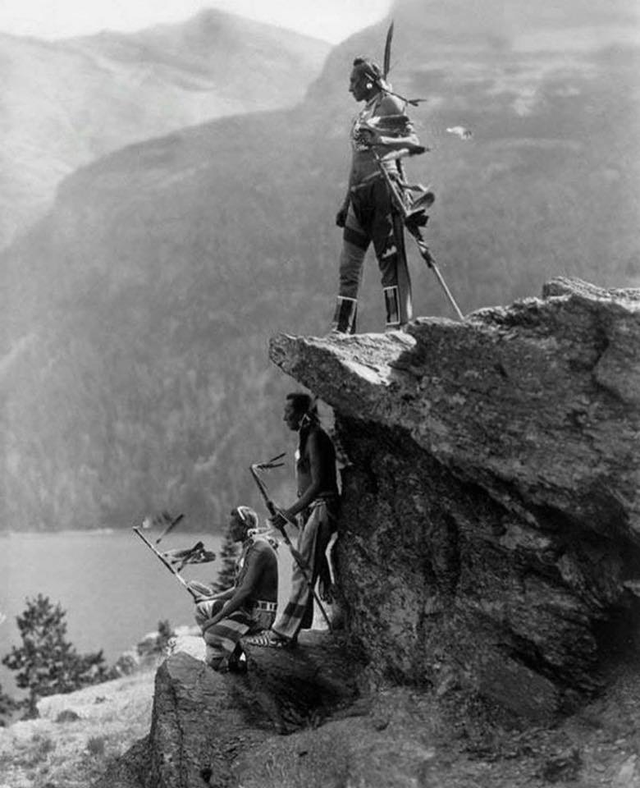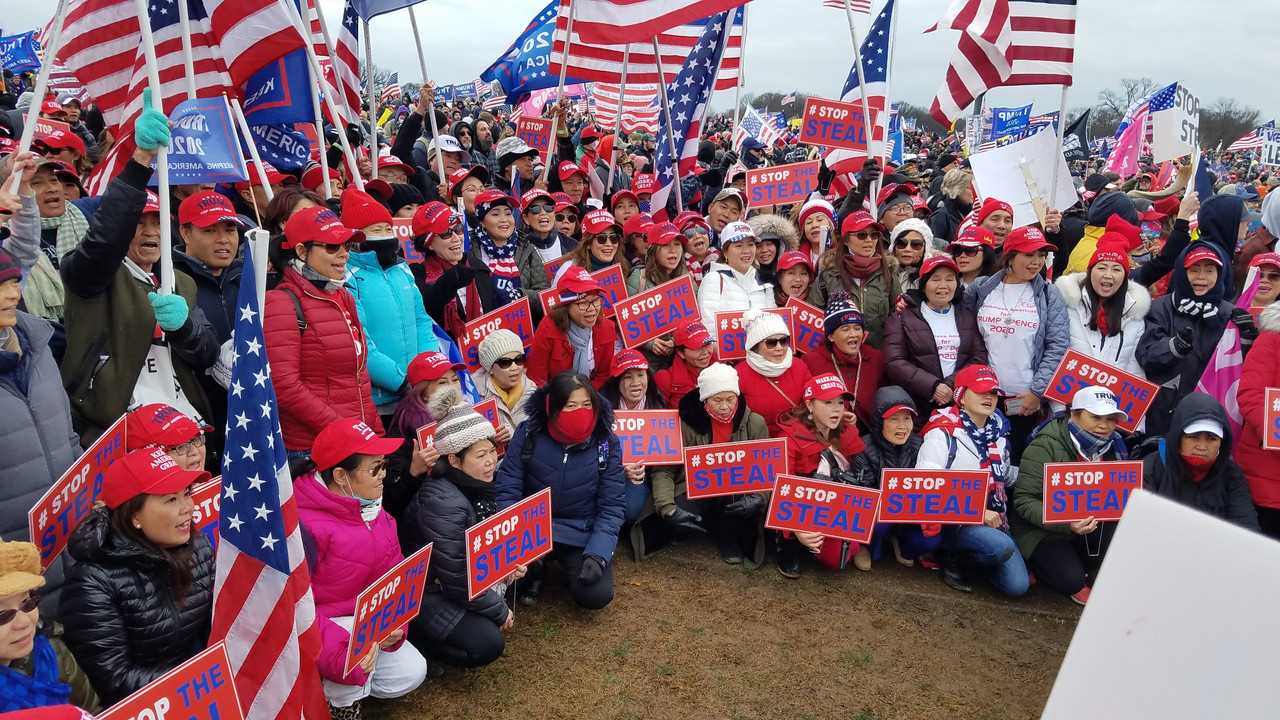 |
"Washington and Fairfax at a War-Dance," engraved by John Rogers after John McNevin, c 1857. |
we were agreeably surpris’d at the sight of thirty odd Indians coming from War"---Native Americans · George Washington's Mount Vernon
 The Indian World Of George Washington - Frontier Partisans
The Indian World Of George Washington - Frontier Partisans
"When we came there, we were attacked by a party of French and Indians...The Virginia troops showed a good deal of bravery, and were nearly all killed; for I believe, out of three companies that were there, scarcely thirty men are left alive. Captain Peyrouny, and all his officers down to a corporal, were killed. Captain Polson had nearly as hard a fate, for only one of his was left. ...I luckily escaped without a wound, though I had four bullets through my coat, and two horses shot under me."--23 year-old Colonel George Washington, American Militia, on the Battle of Fort Duquesne, July 9, 1755.
Many years later, an Indian chief sought out Washington. The chief told him that he and his warriors had exerted themselves mightily, yet in vain, to kill Washington during that battle: "We felt that some Manitou guarded your life and we believed you could not be killed." Washington later told his brother "By the all-powerful dispensations of Providence, I have been protected beyond all human probability or expectation. Death was levelling my companions on every side.".......
 Ojibwe Indian woman and two girls with loaded canoe heading for blueberry camp, Roland Reed, 1920.
Ojibwe Indian woman and two girls with loaded canoe heading for blueberry camp, Roland Reed, 1920. |
| “The turning points of lives are not the great moments. The real crises are often concealed in occurrences so trivial in appearance that they pass unobserved.” |
 |
| George Washington receiving a message from Chief Half-King at the start of the French and Indian War. |
At age 22, Washington led a disastrous military skirmish that sparked a world war.
As France and Britain fought for territory at the edges of the North American colonies, Virginia sided with the British. As an officer in the Virginia militia, Washington was sent to the Ohio Valley (now western Pennsylvania) with some 150 troops, to help repel any attacks by the French. Warned by local Native American allies that a small French force has set up camp within several miles of his position, he led an attack with 40 of his soldiers, along with a dozen native warriors.
George Washington and the Resiliency of Indian People (tribalcollegejournal.org)--Ryan Winn:
In his exhaustive book, The Indian World of George Washington, Collin G. Calloway paints a clearer portrait of interactions between America’s first citizens and its most storied leader. The Dartmouth College professor explains how Washington came to appreciate the tenacity of American Indians and how best to thrive when in their company. As a young man, he was famously out-maneuvered during the French and Indian War, thereby cementing the later belief that his Continental Army’s relationship with its Native allies must be strong throughout the American Revolution. As the nation’s first leader, Washington recognized “that Indians were vital to the national security, and on occasion the very survival, of the fragile [American] republic.” Throughout his first term, Washington often dined with Native peoples, including Mohawks, Senecas, Oneidas, Cherokees, Chickasaws, and Creeks. As Calloway puts it, America’s first president “puffed on the pipe, ate, and drank” with delegations of Native leaders. He understood the power and mystique of both his reputation and his office, and employed both to cajole his guests into surrendering some of their land and assimilating into an agricultural existence.
Still, it’s hardly surprising that the bulk of Washington’s federal budget was spent in wars against Indians. Calloway argues that Washington looked to Indian Country as “colonial space temporarily inhabited by Indian people,” while Native leaders saw their lands as the invaluable home of their ancestors. Calloway describes President Washington’s Indian policy as trying to find a “path that would allow the United States to deprive Indians of their land with minimal bloodshed.” To Natives, Washington was both the “Great White Father” and “Conotocarious,” which means “Town Destroyer” or “Devourer of Villages.” Never far from anyone’s mind was the story of how during the Revolutionary War, General Washington commanded the crippling of defeated Iroquois nations who had allied with the British. Washington wrote, “The immediate objects are the total distruction [sic] and devastation of their settlements and the capture of as many prisoners of every age and sex as possible…[their] country may not be merely overrun but destroyed.” At the same time, President Washington was known for presenting ceremonial swords and cherished medals to Indian leaders who acquiesced to his demands. He was both commander and diplomat-in-chief, and he wielded both roles whenever necessary.
Although it’s been more than two hundred years since George Washington took his last breath, his conflicted Indian legacy is still present in modern America. Today, this equates to tribes facing battles over threats to their resources and waterways, but due to Washington’s nation-to-nation philosophy Native nations within the United States have strong judicial footing. The attacks on treaty rights are ever-present threats, but Indian culture endures and it’s held sacred by its people." .......

"Our own Country's Honor, all call upon us for a vigorous and manly exertion, and if we now shamefully fail, we shall become infamous to the whole world. Let us therefore rely upon the goodness of the Cause, and the aid of the supreme Being, in whose hands Victory is, to animate and encourage us to great and noble Actions — The Eyes of all our Countrymen are now upon us, and we shall have their blessings, and praises, if happily we are the instruments of saving them from the Tyranny mediated against them. Let us therefore animate and encourage each other, and shew the whole world, that a Freeman contending for Liberty on his own ground is superior to any slavish mercenary on earth."

"Moving in his own orbit he imparted heat and light to his most distant satellites; and, combining the physical and moral force of all within his sphere, with irresistible weight he took his course, commiserating folly, disdaining vice, dismaying treason, and invigorating despondency; until the auspicious hour arrived when, united with the intrepid forces of a potent and magnanimous ally, he brought to submission the since conqueror of India; thus finishing his long career of military glory with the luster corresponding to his great name, and in this, his last act of war, affixing the seal of fate to our nation’s birth.
First in War, first in Peace, and first in the hearts of his countrymen, he was second to none in humble and enduring scenes of private life. Pious, just, humane, temperate, and sincere; uniform, dignified, and commanding; his example was as edifying to all around him as were the effects of that example lasting. . . . Correct throughout, vice shuddered in his presence and virtue always felt his fostering hand. The purity of his private character gave effulgence to his public virtues."--Washington's Eulogy, written by Justice John Marshall and delivered by Gen. Henry Lee
 |
| Honor |
"The Constitution which at any time exists, 'till changed by an explicit and authentic act of the whole People, is sacredly obligatory upon all, even on the Little Big Guy and the Obama Syndicate."--Actual President George Washington
 |
| Blackfoot tribe in Glacier National Park, Montana, USA. 1913. Photo by Roland Reed. |
"The Bible tells us in the Last Days that God will pour out His Spirit and there will be great supernatural signs, wonders, miracles and healings. God needs a people that have qualities that American Indians are born with to fulfill this prophecy. American Indians are seers. We are supernaturally-minded, forgiving, giving and humble people. These qualities and others are qualities God needs to flow through American Indians and like-minded people for the Last Day's anointing of God"--Pastor Mel Bond, 10th grandson of Pocahontas
 |
The Nations Speak |
No comments:
Post a Comment